Despite the pandemic dominating European affairs, responding to the climate crisis has become no less urgent. Our EU-wide poll, conducted by eupinions in September 2020, shows that most Europeans state to be open towards significant changes in some areas of their lives to contribute to combating climate change.
Most remarkably, two in three Europeans would support a ban on short flights to destinations that could be reached within 12 hours by train. A similar proportion say they would eat less meat, after they are told of meat production’s contribution to global warming.
In our survey conducted in March 2020, Europeans expressed their desire for the EU to reduce carbon emissions faster than it currently does. In this report, we followed up investigating their personal commitment to contributing to the fight against climate change. 72% of respondents in the EU said they think the EU is not doing enough to combat climate change. Contrary to what one might expect in light of the predominantly young image attributed to climate movements ('Greta'), this is not a generational issue, with little difference detectable between different age groups. (Figure 1)
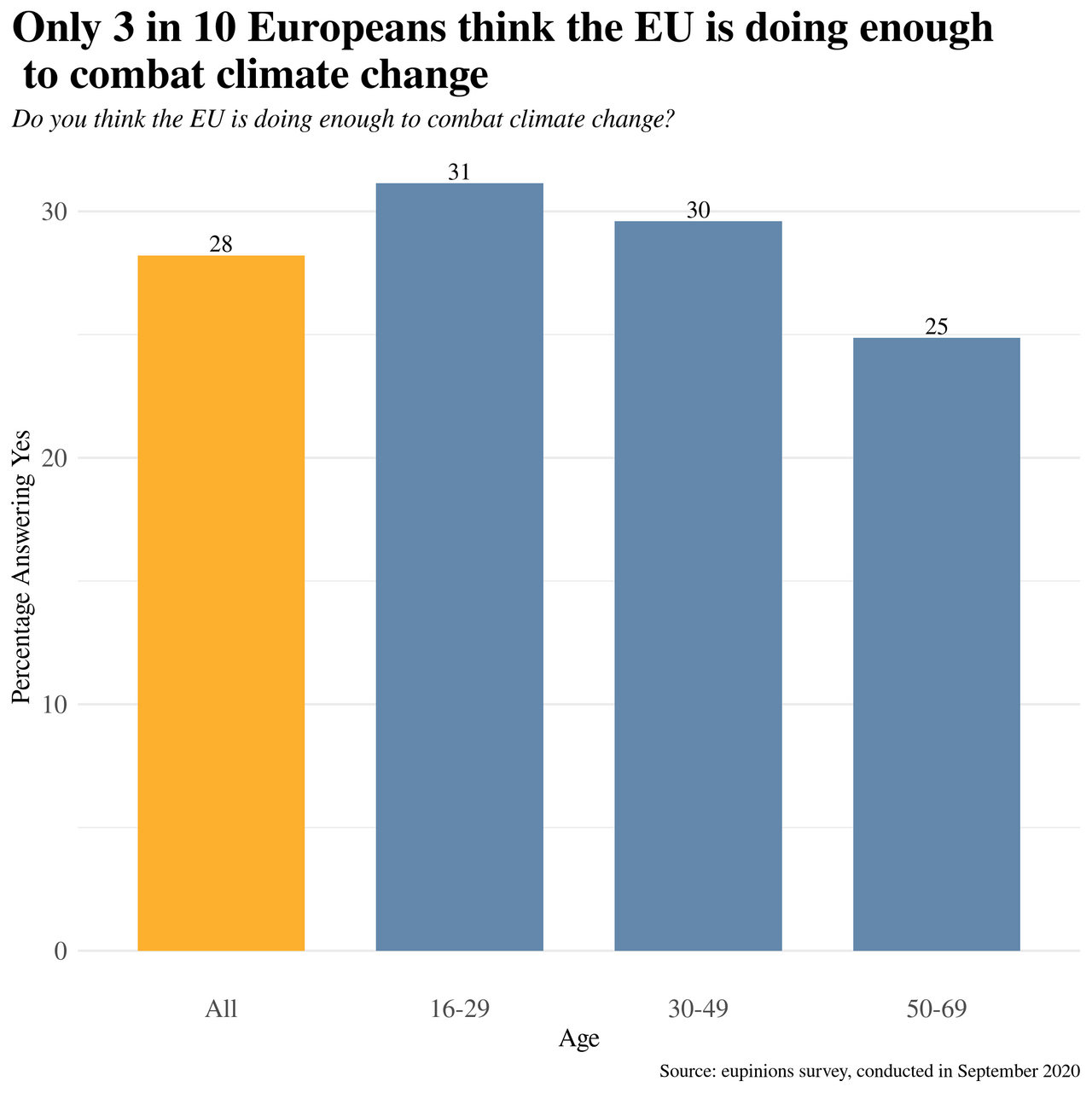
Figure 1: Do you think the EU is doing enough to combat climate change?
The questions in this second survey were again designed by the research team of Europe's Stories, a research project of the Dahrendorf Programme for the Study of Freedom at the European Studies Centre, St Antony's College, University of Oxford, in consultation with the experts of the Bertelsmann Stiftung's eupinions survey. The poll was conducted between September 7th and September 28th 2020 as part of the quarterly eupinions wave, using their usual methodology. In all 27 EU member states and the United Kingdom, over 13,000 respondents between the ages of 16 and 69 were surveyed., As in our previous survey, we call them 'Europeans', although we are well aware that our results do not include all European countries. Once again, we broke the data down into three age cohorts, 'young' (aged 16-29), 'middle' (30-49) and (as seen by our young researchers) 'old' (50-69). As in our last survey, the age breakdown is visualised in the graphics, since we are particularly interested in generational differences in attitudes among Europeans. Given age made little difference for the majority of questions asked, however, we mostly present demographics with more revealing divides in this report and return to the question of age differences in our concluding remarks. The full questionnaire used in the survey can be found here.
Our March 2020 survey showed that while Europeans wish for faster action on climate change, they may be quite reluctant to let the state restrict anything they enjoy. We wanted to explore in greater depth what kind of individual changes European citizens would be willing to make, and which policies they would support in the fight against the climate crisis. What hard trade-offs do Europeans, especially the young, say they would be prepared to make to help to tackle climate change?
To that end, we first provided respondents with a number of actions and asked which of those, if any, they would be ready to take to help combat climate change. We let them select all actions they would be willing to take among the following: reducing their meat consumption, using their car less often, flying less, paying an extra 1% of their income in tax, or none of these options. Only 16% said they would not be willing to make any of these personal changes, and many Europeans were open to making several, with half of those asked saying they were ready to make two or more individual lifestyle changes. While some of our respondents are already vegetarian or do not own a car, even when excluding these respondents there are high proportions of Europeans claiming to be open to making new personal changes to tackle climate change, as shown Figure 2.
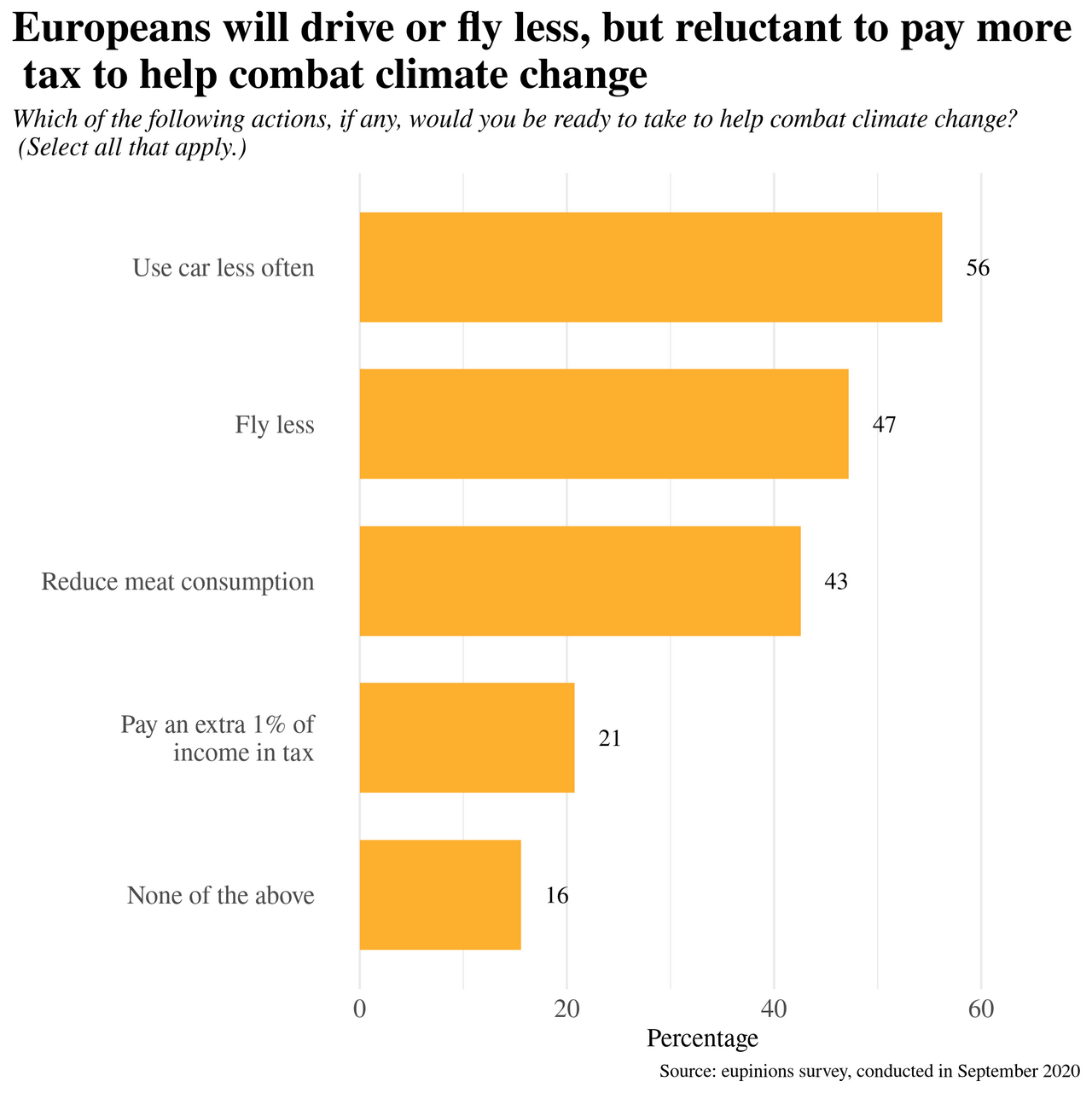
Figure 2: Which of the following actions, if any, would you be ready to take to help combat climate change? (Select all that apply.)
We then wanted to explore European’s attitudes to making some of these individual changes in greater depth by assessing the obstacles to personal change and which policy options Europeans as well as different groups of respondents support. Our findings suggest there is significant support for some individual changes amongst Europeans.
The most popular change individuals claim to be willing to make to their lifestyles was to drive less. It is also striking that in our data 22% of respondents reported not owning a car. Young people are particularly unlikely to be car owners, with a third not owning a car, compared to only a fifth for older age groups. Unsurprisingly, a higher proportion of rural dwellers own cars (85%) compared to those who live in cities (76%).
Of those who do own cars, the most prevalent reason for using a car for personal use is convenience: 42% believe it is more convenient than using public transport. Collectively, these reasons (shown in Figure 3) suggest that while individuals may express an openness towards changing their lifestyle patterns by reducing their car use, there may be significant obstacles to doing this. This is likely to particularly be the case for individuals who live in rural areas with limited public transport where 45% report there are no alternatives to car use, compared to 27% in cities.
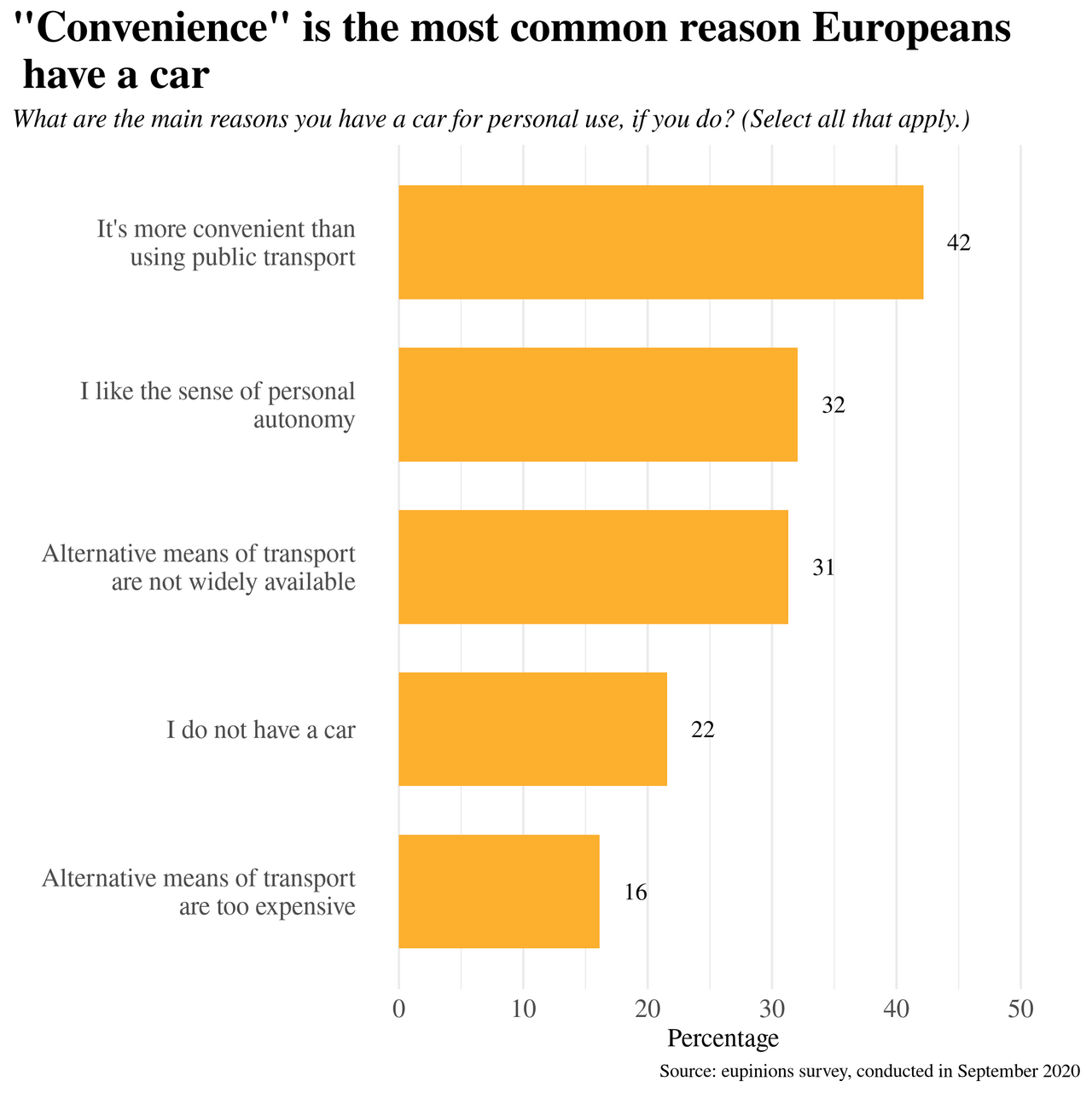
Figure 3: What are the main reasons you have a car for personal use, if you do? (Select all that apply.)
So if there are constraints on individuals’ abilities to enact the individual change they desire, do they support policy proposals which would enforce reductions in driving, or increase the cost of driving?
Strikingly, as shown in Figure 2, despite being open towards reduce their driving personally, respondents were reluctant to support policy proposals – particularly those which had an associated cost for drivers such as additional fuel taxes, charging for the use of certain stretches of motorways or main roads or banning sales of petrol and diesel vehicles. Although we confronted respondents with the environmental impact of petrol and diesel vehicles, the only policy that received significant support was making city centres pedestrian-only zones – a proposal which interestingly received similar support in cities (48%) and rural areas (44%).
It is not clear that the lack of support for these policies is due to people who are sceptical about the need for more to be done to address climate change. Those individuals who told us they don’t think the EU is doing enough on climate change were more likely to support pedestrianising city centres and banning petrol and diesel cars, but not those policies with clear individual costs - increasing fuel tax and charging for the use of certain stretches of road. Further, while most of those we surveyed were willing to make multiple personal changes, few supported multiple policy solutions. Three in ten supported none of the vehicle policy proposals we put to them, and less than a quarter supported two or more. This was the case across age groups, with under 30s supporting no more policy proposals than older groups.

Figure 4: According to the European Commission, cars and vans are responsible for nearly 15% of EU carbon emissions. Which of the following policies would you be willing to support to reduce carbon emissions stemming from cars and vans? (Select all that apply.)
In regard to flying, one of our findings is that most Europeans said they used to fly very infrequently: 75% only used to fly once a year or less prior to the outbreak of Covid-19. Frequent flyers, flying once every two weeks or more often, only make up 2% of the population of Europeans surveyed. There are notable divides in the proportion of frequent flyers between countries, with Britain having the highest proportion (6%) of those travelling at least every two weeks. Given these findings, it is perhaps not surprising that flying less is one of the individual changes that many Europeans claim to be ready to make.
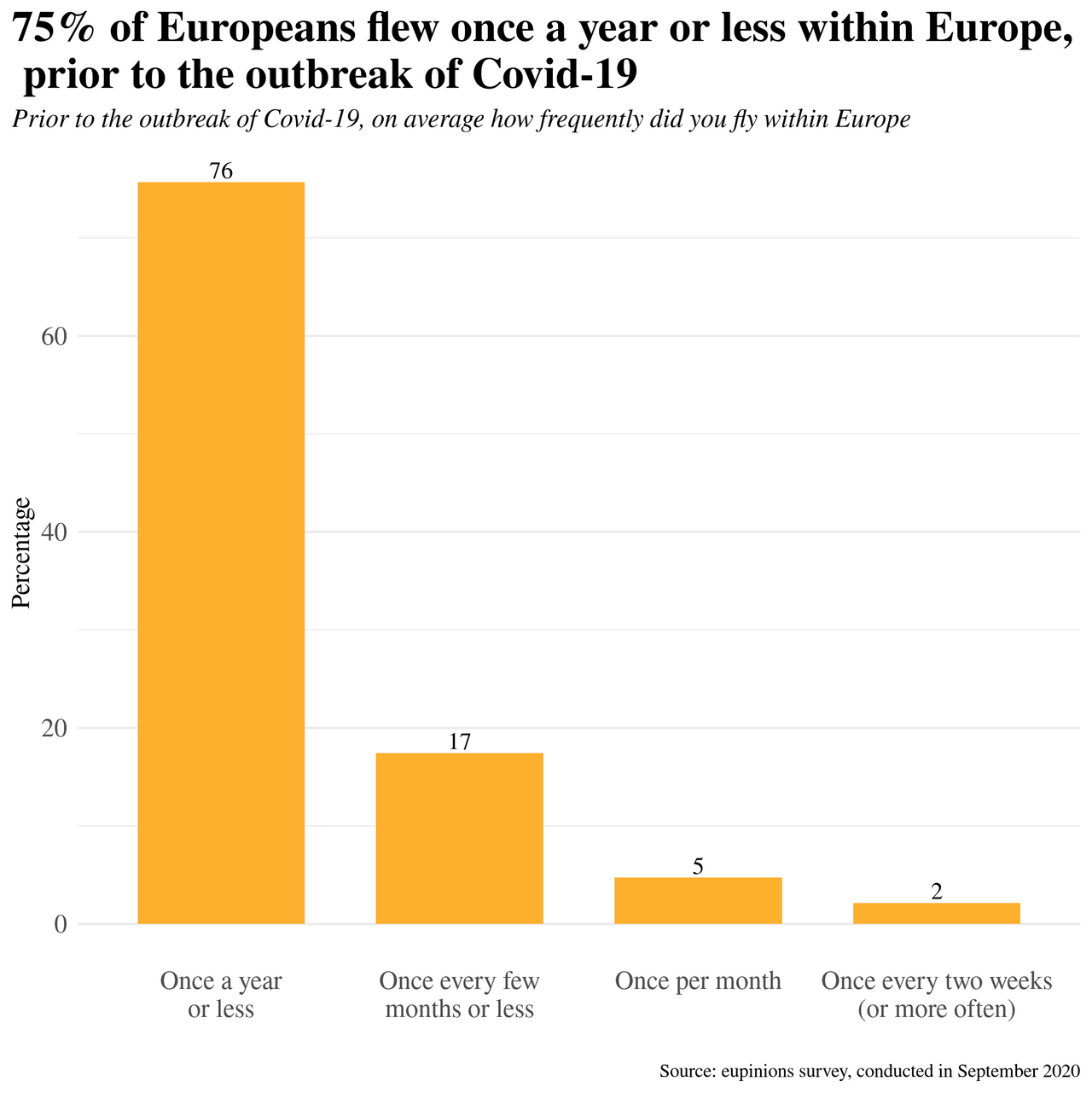
Figure 5: Prior to the outbreak of Covid-19, on average how frequently did you fly within Europe?
Nonetheless, there is one policy change which would have a major impact and enjoys significant support. Within the EU-28, domestic and intra-EU flights together make up the majority of air passenger transport, yet even short-haul flights produce great amounts of greenhouse gases. Remarkably, 65% of Europeans state they would support a ban on short flights to destinations that could be reached within 12 hours by train. Interestingly, flying more does not systematically make someone more or less supportive of a ban on short flights. Amongst respondents who used to fly once every two weeks (or more often), 74% would support a ban on short-haul flights. Those who used to fly once every few months or less were least supportive of a ban on short-haul flights (54%), while support for such a ban is slightly higher amongst those flying least (67%).
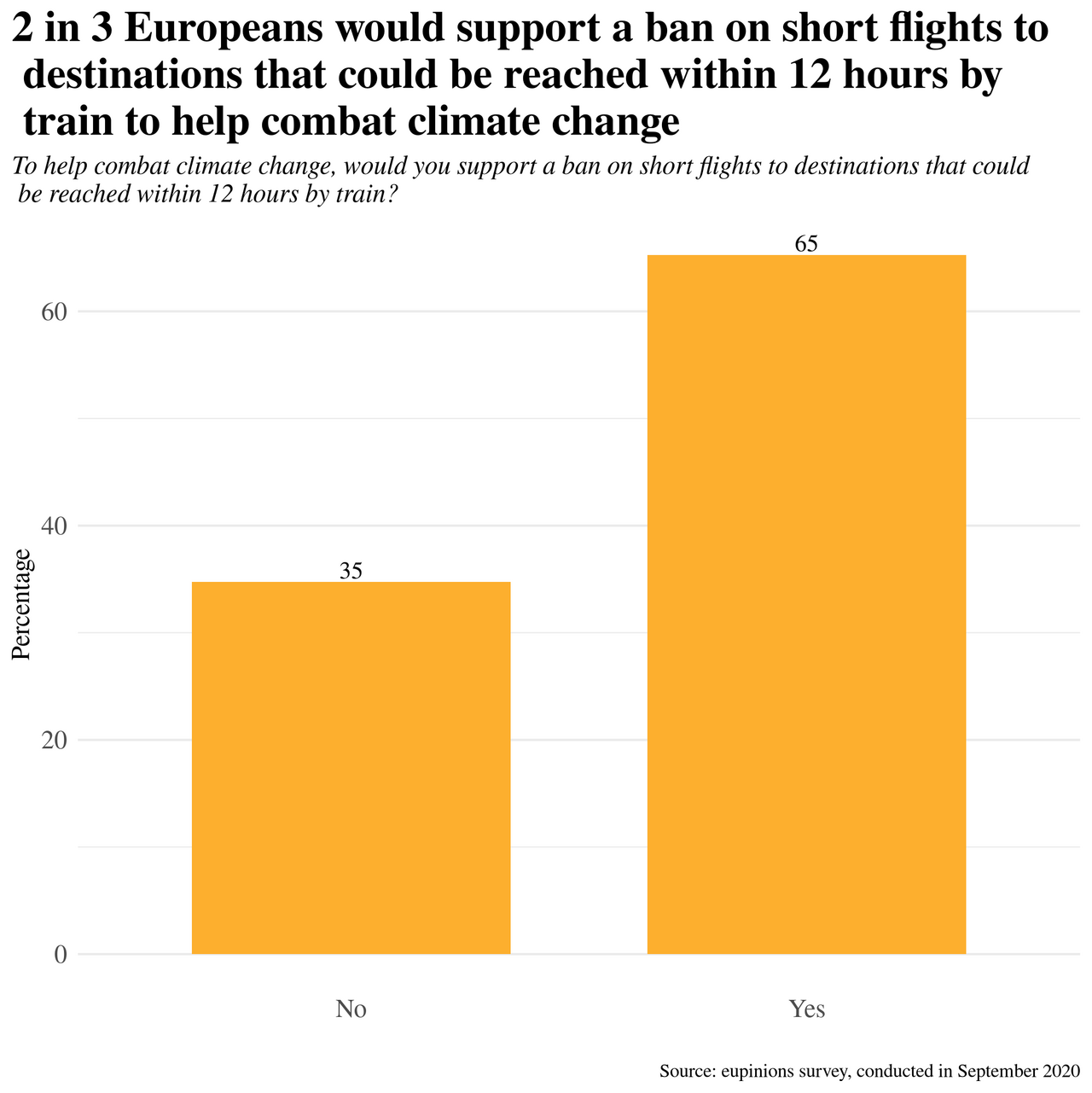
Figure 6: To help combat climate change, would you support a ban on short flights to destinations that could be reached within 12 hours by train?
While during the Covid-19 pandemic, flying less was no longer a matter of choice, financial state support for national airlines equally became a matter of discussion. In many countries, the possibility of tying environmental conditions to state support for national airlines played into the debate. The majority of respondents (58%) think national governments should only give state support to national airlines attached to environmental conditions, more specifically, phasing out fuel-inefficient aircrafts and reducing short-haul flights, with those who fly most being the most likely to want to impose such restrictions (68%). Only 23% of Europeans think national governments should give unconditional state support to national airlines. 19% of respondents ruled out public funds being given to national airlines by their governments under any conditions.
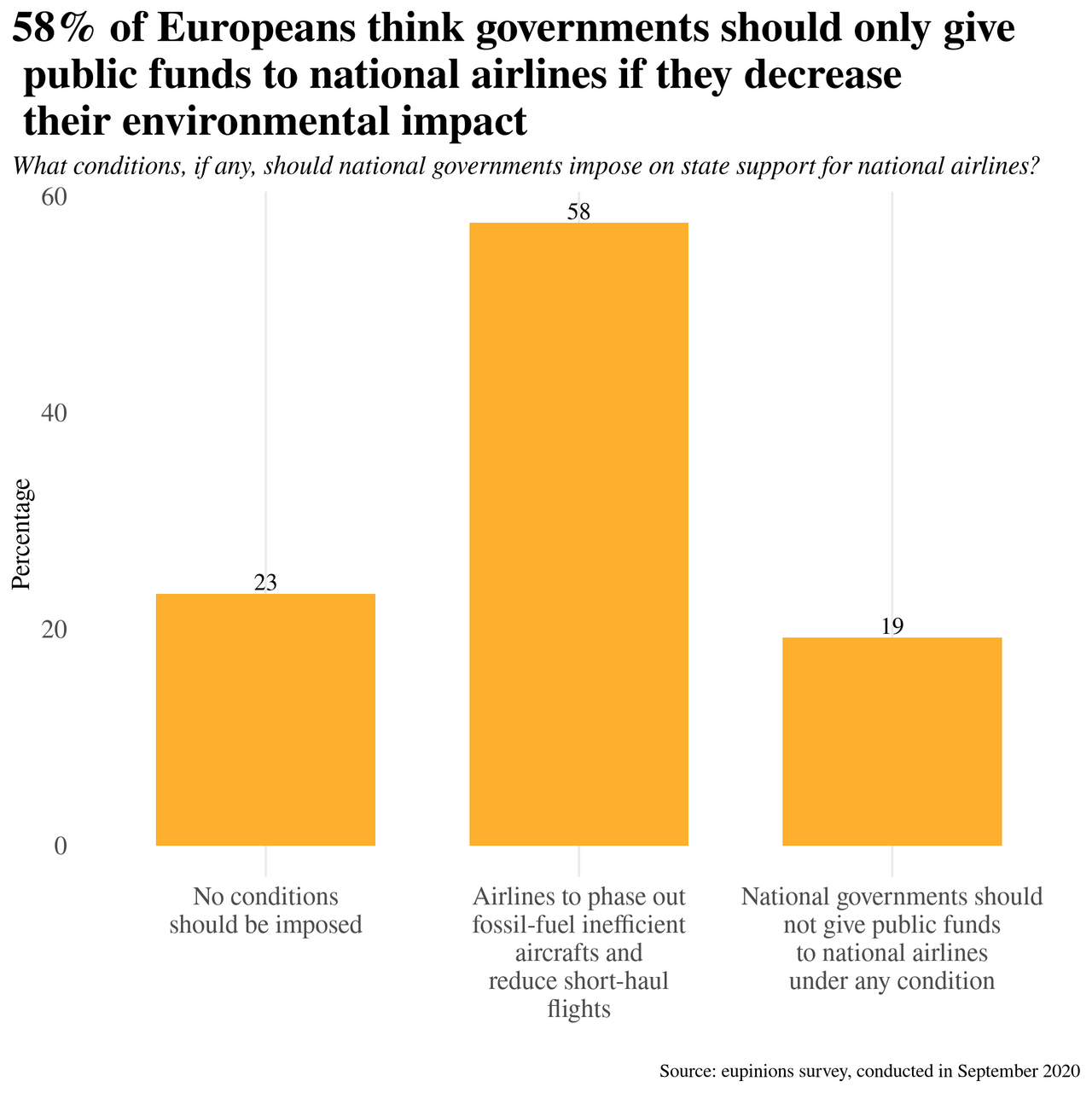
Figure 7: What conditions, if any, should national governments impose on state support for national airlines?
Turning to meat consumption, we found that Europeans are less enthusiastic about regulation of their dietary preferences than they are about travel restrictions. We assessed the obstacles to reducing meat consumption facing Europeans, of which the most common, chosen by 43% of respondents, was that they like eating meat. Other options, such as the lack of attractive alternatives to meat and the price of a meat-free diet in their country, did receive limited support, as seen in Figure 8.
Additionally, 7% of the European population are already vegetarian or vegan. Here, there is quite a lot of variation between countries, with a high proportion reported in Germany at over one in ten, while in Poland, only 4% reported a meat-free diet. Younger Europeans are more likely to follow meat free diets, across countries 9% of under 30s reported following a meat-free diet. The gender gap in vegetarian and vegan diets is also notable, with 9% of women reporting this as a dietary choice compared to only 5% of men.
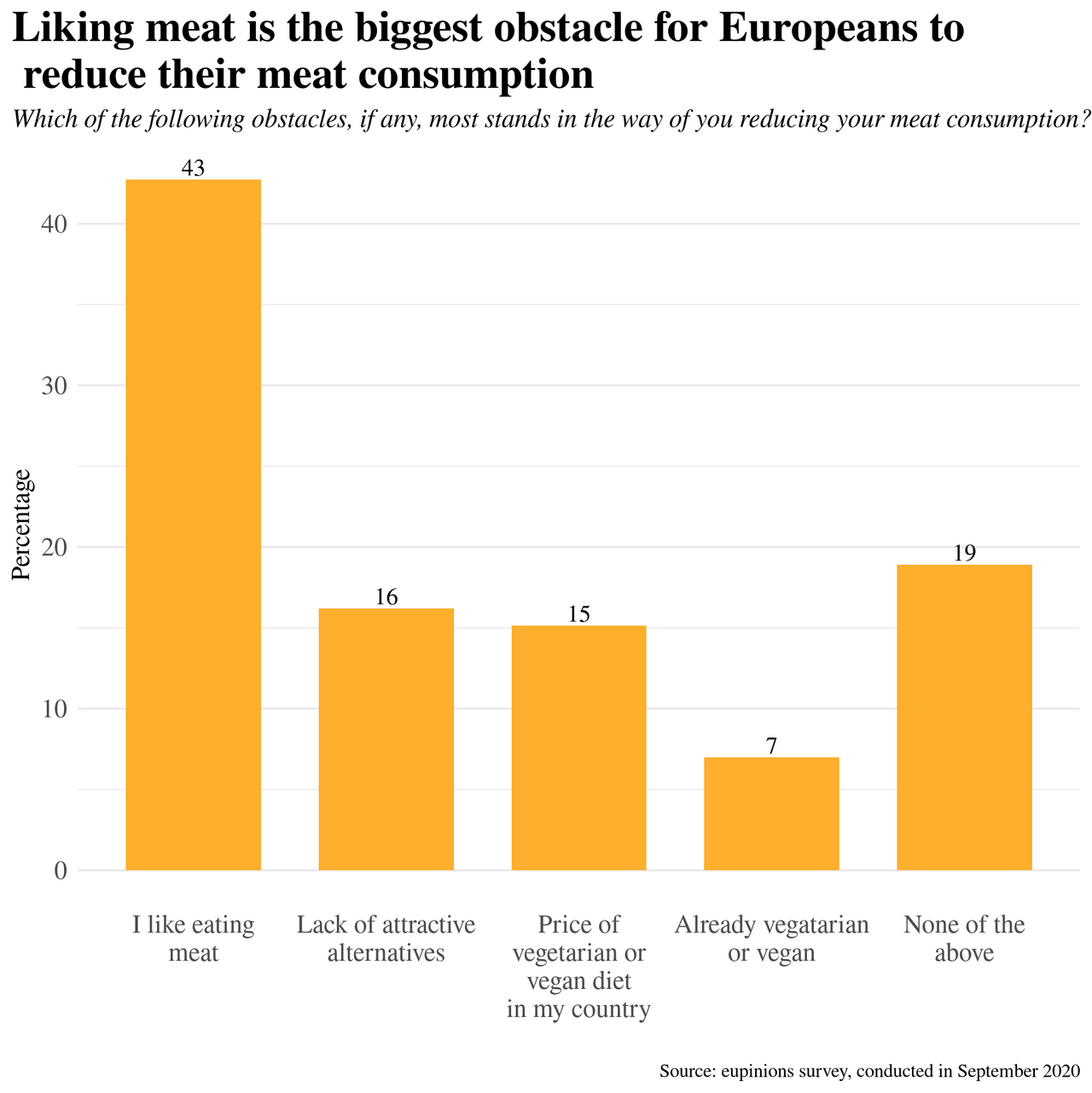
Figure 8: Which of the following obstacles, if any, most stands in the way of you reducing your meat consumption?
We wanted to find out how respondents’ answers would vary if we confronted them with the environmental impact of meat consumption. We provided them with the following statement: “According to the UN Food and Agriculture Organisation, livestock production is responsible for nearly 15% of greenhouse gas emissionsworldwide” and asked which step, if any, they would be prepared to take to reduce overall meat consumption. We let them choose between the following options: give up eating meat completely, eat less meat, no reduction and already not eating meat. Following this statement, 68% said they would be prepared to reduce their meat consumption (either by giving up meat or eating less of it) or were already not eating meat. The gender gap in attitudes to meat is striking again here, with 38% of men unprepared to reduce their meat consumption compared to 25% of women.
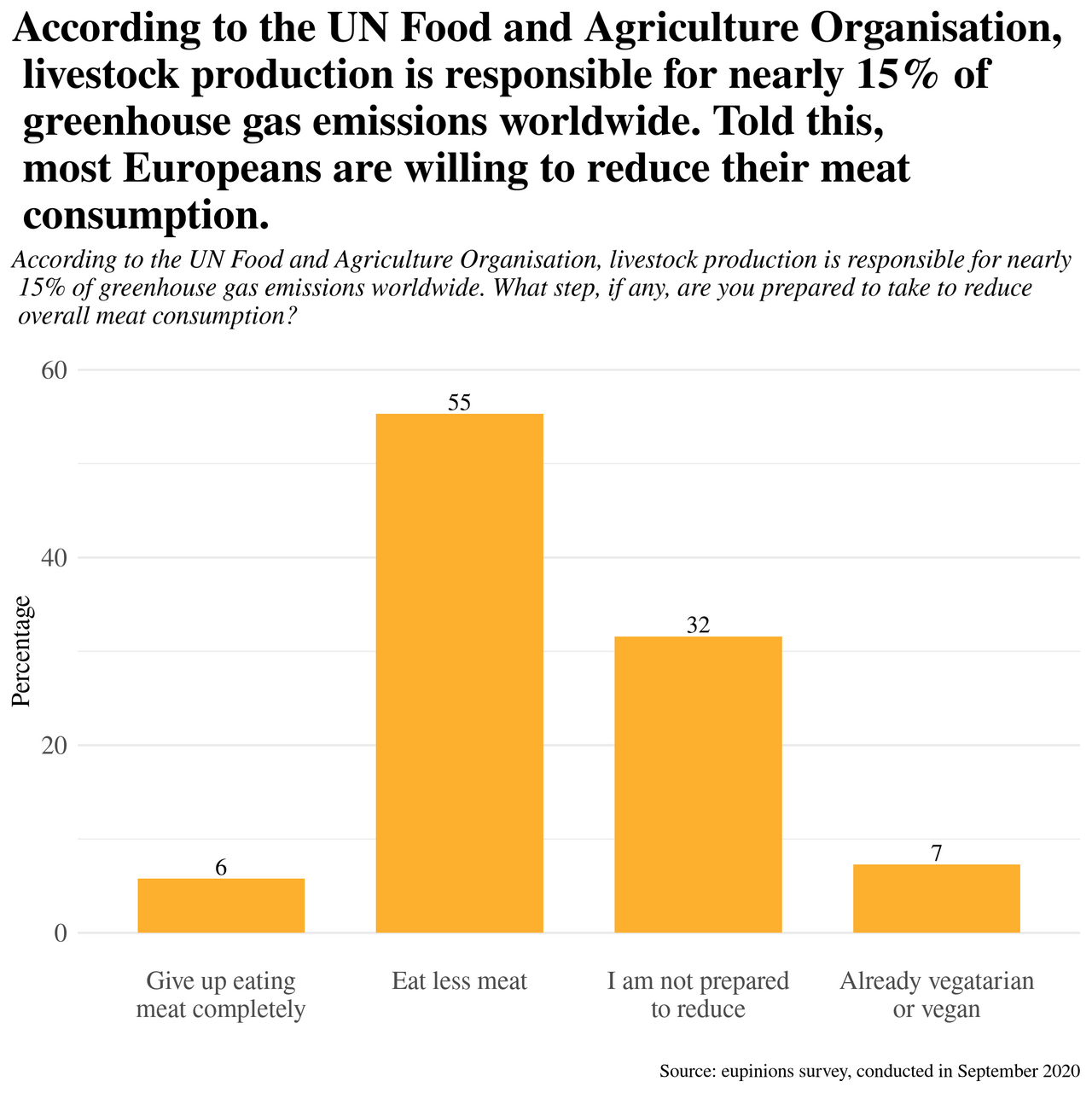
Figure 9: According to the UN Food and Agriculture Organisation, livestock production is responsible for nearly 15% of greenhouse gas emissions worldwide. What step, if any, are you prepared to take to reduce overall meat consumption?
Finally, we found that Europeans are reluctant to accept restrictions of their dietary choices in public spaces. 51% of Europeans would not accept the restriction of dietary choices to vegetarian and vegan only in school and university eating facilities, workplace eating facilities or restaurants. The young are much more willing to accept the restriction of dietary choices in public venues to vegetarian and vegan only, with only 38% opposed to any restrictions compared to 61% for the over 50s.

Figure 10: In which of these venues, if any, would you accept the restriction of dietary choices to vegetarian and vegan only? (Select all that apply.)
In sum, we find that, in the fight against climate change, Europeans claim to be relatively open towards lifestyle changes but are more hesitant to accept policies restricting their individual choices. Contrary to a widespread assumption, younger Europeans are no more willing to accept any of these changes or policies in most instances. Attitudes towards climate policies may well be less of a generational issue than they sometimes seem in public discourse. Most Europeans state they would be willing to drive less. Europeans are less willing to accept policy regulations on diesel and vehicle cars or on dietary choices in public spaces. In contrast, however, the vast majority of Europeans are strong proponents of regulating air travel, be it through a ban on short flights or attaching green strings to airline bailouts. Interestingly, when told about meat production’s environmental impact, a majority also say that they would be prepared to eat they would less meat.
These findings suggest that European policymakers would be wise to explore empirically what sacrifices or trade-offs their citizens are most prepared to make, in the interests of combating climate change. They also suggest that a stronger public information campaign, on issues such as the environmental impact of livestock production, could significantly affect those preferences – and thus Europe's ability to meet ambitious green goals.
----------
The authors are members of the Europe's Stories project research team of the Dahrendorf Programme for the Study of Freedom at St Antony's College, Oxford University. This poll was part of a collaboration between that project and eupinions. Europe's Stories is funded by the Mercator foundation, the Zeit foundation, and the Friedrich Naumann foundation.
Method
The sample with a size of n=13.080 was drawn by Dalia Research from September 7-28 2020 across all 27 EU Member States plus the UK, taking into account current population distributions with regard to age (14-69 years), gender and region/country. In order to obtain census representative results, the data were weighted based upon the most recent Eurostat statistics. Calculated for a sample of this size and considering the design-effect, the margin of error would be +/-1.1 % at a confidence level of 95 %.


